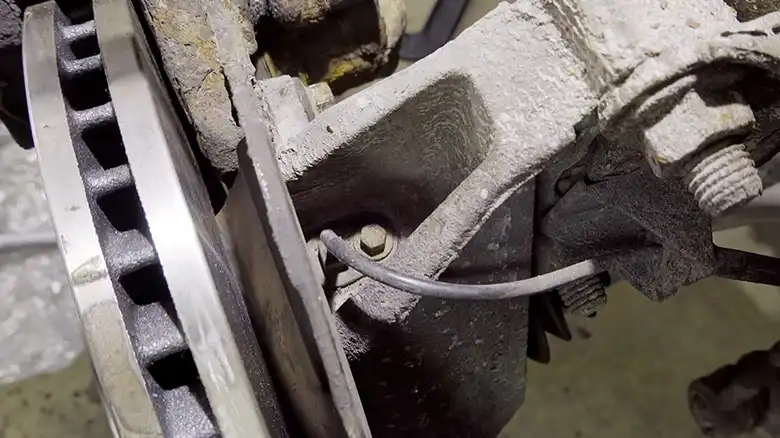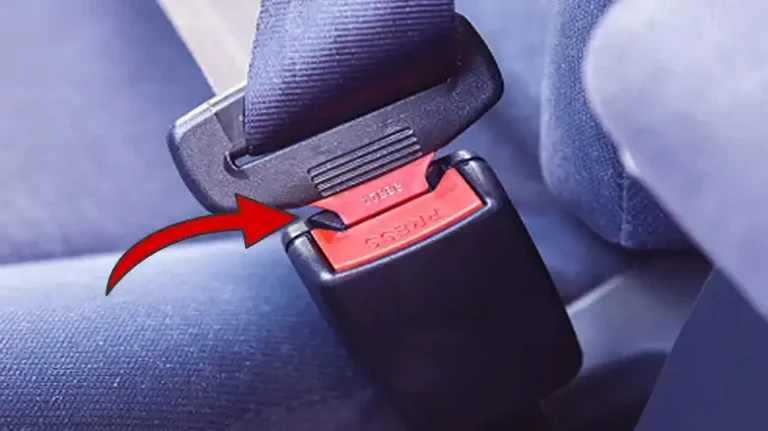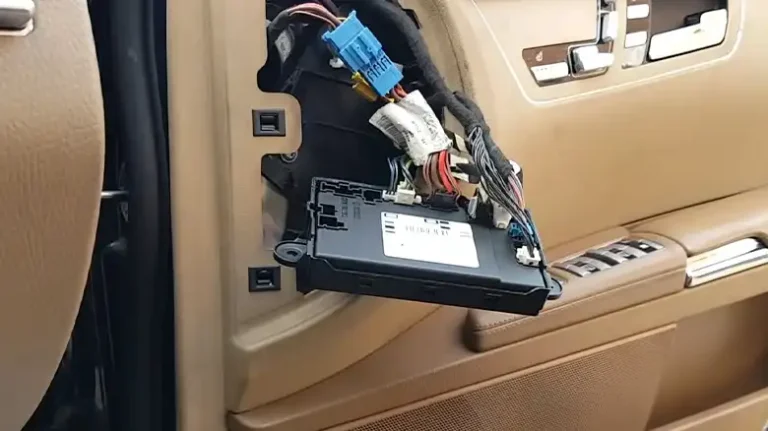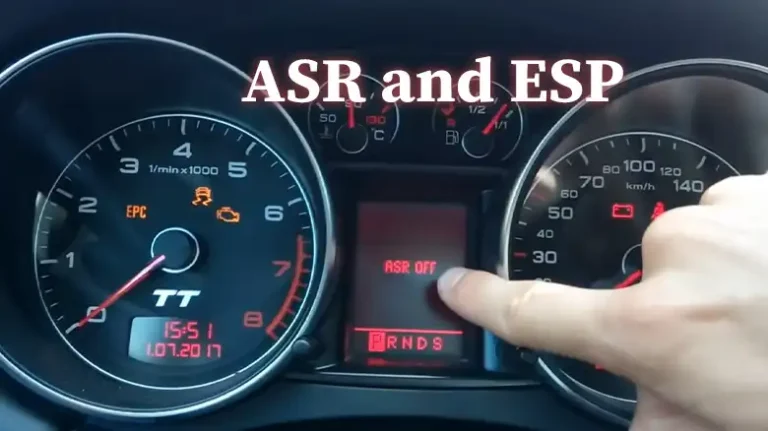Can Water Affect Abs Sensors | Water’s Impact on ABS Sensors?
I’ve spent time thinking about what happens when water gets into the ABS sensors on my car. As a driver, I know it’s an important issue since water can sneak into places and cause problems with the delicate ABS sensors.
From experience, I’ve learned that water in the sensors disrupts their intricate workings. This leads to anything from minor issues to complete sensor failure, compromising the safety of my vehicle’s braking system. That’s the last thing I want as a driver.
And, Yes, water can affect ABS (Anti-lock Braking System) sensors. Exposure to water or moisture may lead to sensor malfunction, impacting braking performance.
The good news is there are ways I can protect my ABS sensors from water damage. I’ve researched solutions and steps I can take, like precautions to shield the sensors from exposure. Maintaining this essential system is crucial.
If you’re wondering about the impact of water on ABS sensors and how to shield your vehicle, this article serves as your guide. I’ll offer valuable insights, expert advice, and a thorough overview of the issue. Learn with me, how to keep your ABS sensors running smoothly, even when facing water-related challenges.

Does Water Affect ABS Sensors?
Yes, water can indeed affect ABS (Anti-Lock Braking System) sensors. These sensors play a crucial role in ensuring the safe operation of your vehicle’s braking system. Water exposure can compromise their functionality and, consequently, the safety of your vehicle. In this article, we will explore how water can impact ABS sensors, the signs of water damage, ways to prevent it, and what to do if your sensors are affected.
Functionality of ABS Sensors
Water can disrupt the intricate workings of ABS sensors, leading to issues or failure, and compromising vehicle safety. Protecting ABS sensors from water damage maintains essential braking system functionality.
Explaining ABS Sensors
ABS sensors are small devices installed on each wheel of your vehicle. Their primary function is to monitor the speed of the wheels. They accomplish this through the use of a magnet and a coil, which generate a signal based on the rotation of the wheel. This signal is then transmitted to the ABS control module.
How ABS Sensors Work?
The ABS control module receives signals from all four wheels and continuously monitors their speed. If it detects that one or more wheels are about to lock up during braking, it intervenes by modulating the brake pressure to that wheel. This prevents skidding and helps you maintain steering control.
Types of ABS Sensors
There are two main types of ABS sensors: the passive sensor and the active sensor. Passive sensors use a toothed wheel and a coil to generate a signal, while active sensors use a magnetic field and a Hall-effect sensor. Both types serve the same purpose: keeping your vehicle’s braking system in check.
Vulnerability of ABS Sensors to Water
Water’s effects on ABS sensors can be significant, sneaking into unexpected places and disrupting their intricate workings, leading to compromised functionality or complete failure.
Water as a Potential Threat
Water, though seemingly harmless, can be a significant threat to ABS sensors. When water infiltrates the sensors, it can disrupt the electromagnetic signals and lead to erratic readings. This can compromise the ABS system’s ability to prevent wheel lockup effectively.
Common Scenarios Leading to Water Exposure
ABS sensors are located near the wheels, which makes them vulnerable to water exposure in various situations. Driving through deep puddles, heavy rain, or flooded streets can lead to water intrusion. Even high-pressure car washes can force water into sensitive areas.
Impact of Water on ABS Sensors
When water infiltrates ABS sensors, it can lead to corrosion, rust, and electrical damage. This can cause the sensors to malfunction, potentially leading to a false ABS activation or, in the worst cases, a complete failure of the ABS system.
Signs of Water Damage to ABS Sensors
Water damage to ABS sensors may manifest as compromised functionality or complete failure, disrupting their intricate workings and the vehicle’s braking safety. Early warning signs include ABS light illumination or uneven braking.
Detecting Water-Related Issues
If your ABS sensors have been exposed to water, you may notice warning signs. These include the ABS warning light on your dashboard, strange noises during braking, or the feeling that your brakes are not responding as they should. In some cases, you might also receive error codes through your vehicle’s diagnostic system.
Warning Lights and Error Codes
When the ABS warning light is illuminated, it’s a clear indicator that something is amiss with the ABS system. Additionally, error codes related to ABS sensor issues may appear during a diagnostic scan. These codes can provide specific information about the problem, making it easier to identify and address.
Implications for Vehicle Safety
Water damage to ABS sensors can compromise your vehicle’s safety. Without functioning ABS sensors, your vehicle is at a higher risk of skidding and losing control during emergency braking situations, which can lead to accidents.
Preventing Water Damage to ABS Sensors
Protect ABS sensors from water damage by checking connections for corrosion, avoiding puddles and flooding, inspecting sensor seals, and drying connectors after washing. Maintaining sensors prevents failure.
Protecting Your Vehicle
To prevent water damage to ABS sensors, it’s essential to avoid driving through deep water, especially if you’re uncertain about its depth. Be cautious in heavy rain and consider alternative routes when faced with flooded roads. Additionally, take care when using high-pressure car washes, ensuring that water doesn’t infiltrate the sensors.
Maintenance and Inspection Tips
Regular maintenance and inspection are crucial. Ensure that your ABS sensors are clean and free from debris. Regularly inspect the wiring and connections to ensure they are in good condition.
Protective Measures for ABS Sensors
Applying a thin layer of silicone or waterproofing material to the sensors can add an extra layer of protection. This can help mitigate the risk of water damage.
How Water Affects ABS Sensors?
Water can disrupt ABS sensor workings, leading to compromised functionality or complete failure. This affects vehicle braking safety. Protecting sensors from water prevents issues and maintains optimal performance.
Flooding Incidents
In cases of severe flooding, water can easily infiltrate ABS sensors. This can lead to the immediate loss of ABS functionality, putting the driver at risk.
Driving in Heavy Rain
Heavy rain can also pose a threat. While it may not cause instant damage, prolonged exposure to moisture can lead to corrosion and, eventually, sensor malfunction.
Off-Roading Adventures
Off-roading in wet conditions can lead to mud and water splashing onto the ABS sensors. This can result in short-term dysfunction and long-term damage if not addressed.
Queries and Solutions
How do I know if my ABS sensors are water-damaged?
Water damage to ABS sensors may manifest as the ABS warning light on your dashboard, unusual noises during braking, or erratic braking behavior. You may also receive error codes through a diagnostic scan.
Are ABS sensors in all vehicles?
Most modern vehicles are equipped with ABS systems that include ABS sensors. However, not all vehicles have them, particularly older models.
Can I drive with a malfunctioning ABS system?
While it’s possible to drive with a malfunctioning ABS system, it’s not recommended. A malfunctioning ABS system can compromise your ability to control the vehicle during emergency braking, increasing the risk of accidents.
What are the costs of ABS sensor repair or replacement?
The cost of ABS sensor repair or replacement varies depending on the make and model of your vehicle, labor costs, and the extent of the damage. It’s best to consult a mechanic for an accurate estimate.
Can I fix water damage to ABS sensors on my own?
Basic maintenance, like cleaning and inspecting the sensors, can be done by vehicle owners. However, addressing water damage often requires professional expertise, so it’s recommended to consult a certified mechanic.
Is it safe off-road with ABS sensors?
Off-roading can expose ABS sensors to mud and water, potentially causing short-term dysfunction. While they are designed to withstand some exposure, extreme conditions should be avoided to prevent long-term damage.
Can water damage lead to complete ABS failure?
Yes, water damage to ABS sensors can lead to ABS failure if not addressed promptly. It’s essential to take steps to prevent water damage and address it when detected.
Are ABS sensors affected by car washes?
High-pressure car washes can force water into sensitive areas, potentially causing water damage to ABS sensors. It’s advisable to be cautious when using such car washes.
How often should I inspect my ABS sensors?
Regular inspections, ideally during routine maintenance, are recommended. Additionally, inspections before extreme weather conditions or after significant water exposure are crucial to identifying potential issues.
Do modern vehicles have advanced water-resistant ABS sensors?
Some modern vehicles are equipped with advanced ABS sensors designed to resist water to a certain extent. However, they are not entirely waterproof, and precautions should still be taken to avoid water exposure.
Final Thoughts
Water can indeed affect ABS sensors, potentially compromising the safety of your vehicle. Regular maintenance, careful driving in wet conditions, and proactive measures can help protect these critical components. Being aware of the signs of water damage and addressing issues promptly is essential to ensuring your ABS’s reliability and, by extension, your safety on the road.


![[Explained] Does ABS Work in Neutral?](https://proautosafety.com/wp-content/uploads/2023/03/Does-ABS-Work-in-Neutral-768x431.webp)

![[Answered] Does Cruise Control Drain Battery?](https://proautosafety.com/wp-content/uploads/2023/03/Does-Cruise-Control-Drain-Battery-768x431.webp)
